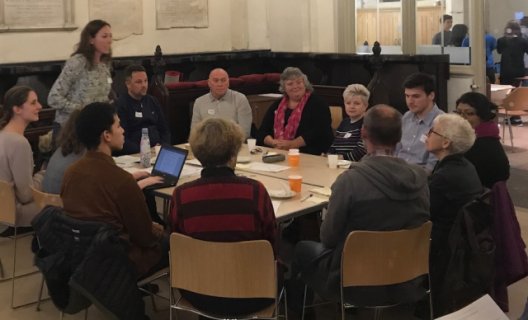As part of the ORION project, four partners conducted a public dialogue to investigate public opinions on genome editing technology and its implications for biosciences research. The public dialogues took place late 2019 and early 2020 in four European countries: the UK, Czech Republic, Germany and Sweden. These dialogues have served as an instrument to support and encourage ORION overarching goal: embedding Open Science and Responsible Research and Innovation (RRI) principles in research funding and performing organisations (RFPOs).
Ipsos MORI, was commissioned to implement the full dialogue project, which consisted of a series of open dialogues in four European countries, corresponding to ORION project task 3.3.2. ORION partners at the Babraham Institute (BI) in the UK managed the project with support from participating ORION partners at the Central European Institute for Technology (CEITEC) in the Czech Republic, the Max Delbrück Centre for Molecular Medicine (MDC) in Germany and Vetenskap & Allmänhet (VA) in Sweden. An international Advisory Board and four Institutional Review Groups provided further oversight and governance.
The project was originally designed by the ORION coalition (ORION Task 3.3.1, D3.2) in 2018 and the specifics refined by Ipsos MORI in collaboration with BI, in consultation with the Advisory Board and Review Groups, during 2019. Materials shared with the public during the events were co-designed with internal and external stakeholders from each participating organisation. The public dialogue events lasted 1.5 days in each country, counted with over 30 members of the public and took place between October 2019 and February 2020. Ipsos MORI produced four reports gathering all the findings of each country and one ‘synthesis’ report highlighting similarities and differences.
The key aims for this project were:
- To understand the public’s hopes and fears with regards to genome editing
- To understand when and how to engage audiences with disruptive technologies
- To understand how public engagement strategies might differ between countries
- To contribute towards increasing knowledge and embedding Open Science and RRI in RFPOs
- To contribute towards enriching and improving the quality of existing training on RRI and Open Science
